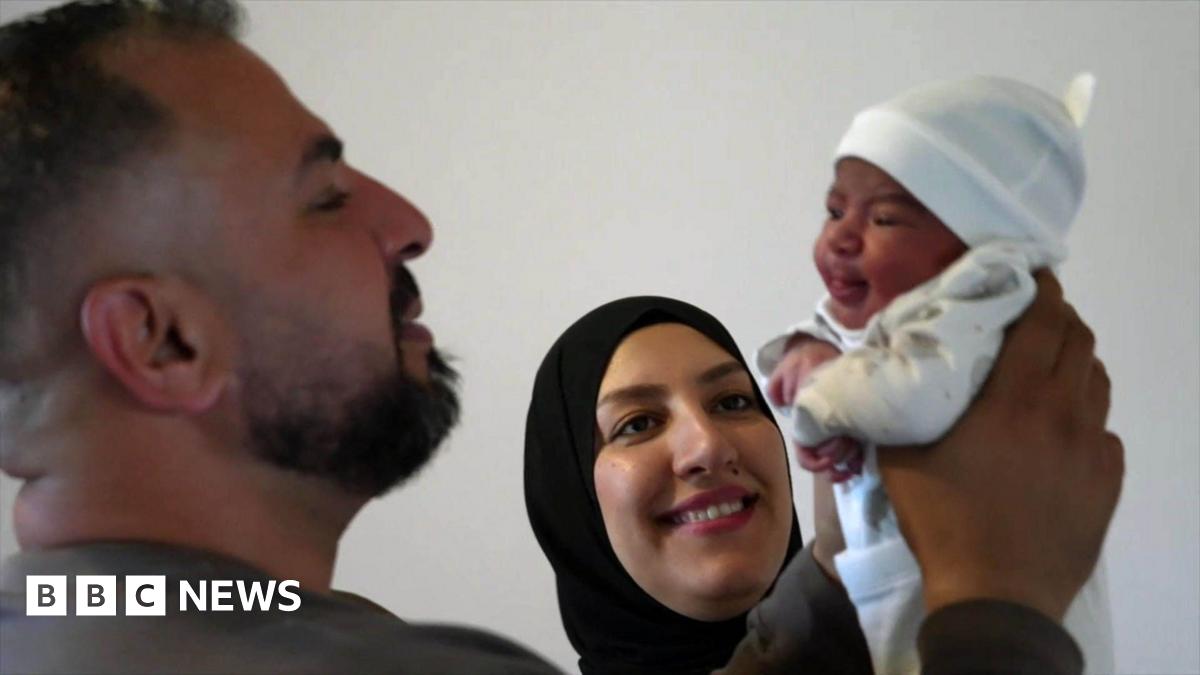The family did eventually make their way, via Finland, to Sweden because they were denied the right to stay in Belgium. But early last year, they were told that they had to leave Sweden too.
European immigration officials had repeatedly ruled that their home city of Basra, in southern Iraq, was no longer a war zone and their requests for asylum were all declined.
But Nour and Ahmed insisted that their lives would be in danger if they were deported back to Iraq – a country that their children had never known.
“If we thought we could actually live [safely] in Iraq, we would have gone a long time ago,” says Nour.
Convinced they might soon be forced to return to Basra, Ahmed reached out to an Iraqi Kurdish smuggling gang and paid them €5,250 (£4,576) to transport the family by small boat to England, where some of their relatives were already living.
Early on 23 April last year, I was waiting with BBC colleagues on Wimereux beach, when we spotted a smuggling gang battling against French police. Moments later, in the early dawn light, we saw a man hoist a child onboard an inflatable boat. The girl was seven-year-old Sara. As more people clambered onboard, she became trapped beneath her father’s legs and suffocated in the dark, along with four other people.
“I will never forgive myself. But the sea was the only chance I had,” Ahmed told me soon afterwards.
A fortnight later, Sara was buried in a cemetery in the nearby city of Lille.
